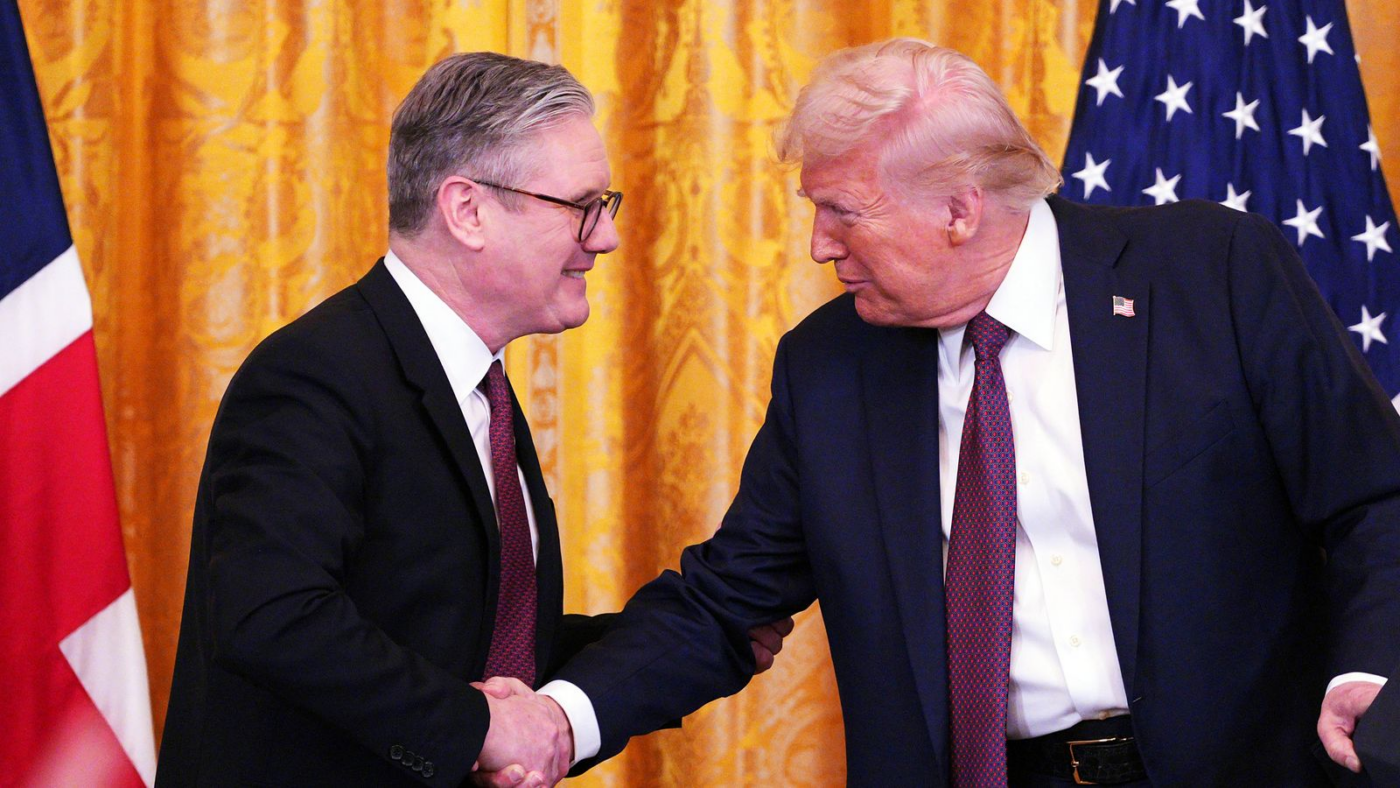News
When Sports Turned into a Diplomatic Tool – As Starmer Was Invited to Join Trump’s Golf Group

Sports have long been more than just a form of entertainment or physical activity. They are a universal language that transcends borders, cultures, and ideologies. In recent years, the concept of sports diplomacy has emerged as a powerful tool in international relations, fostering dialogue, building relationships, and addressing political and social issues. A fascinating example of this is the recent invitation for UK Prime Minister Sir Keir Starmer to join former US President Donald Trump’s golf group—a move that highlights how sports can serve as both a bridge and a battleground in the world of diplomacy.
This blog explores the broader implications of sports as a diplomatic tool, delves into the historical and modern examples of sports diplomacy, and analyzes Starmer’s unique position in this unfolding narrative.
The Rise of Sports Diplomacy
At its core, sports diplomacy involves the use of sports to facilitate dialogue and foster cooperation between nations. It leverages the universal appeal of sports to bridge divides and create opportunities for meaningful interaction. From table tennis matches between the US and China in the 1970s to cricket diplomacy between India and Pakistan, sports have repeatedly proven their ability to transcend political tensions.
In today’s interconnected world, sports diplomacy has gained even greater significance. Governments, organizations, and athletes are increasingly using sports as a platform to promote peace, cultural exchange, and mutual understanding. Whether it’s through high-profile events like the Olympics or grassroots initiatives like sports exchange programs, these efforts demonstrate the unifying power of athletic competition.
Golf as a Diplomatic Arena: Trump’s Strategy
Donald Trump has often used golf as a means of forging personal connections with world leaders. During his presidency, he played rounds with figures such as Japanese Prime Minister Shinzo Abe and French President Emmanuel Macron. Golf provided an informal setting for discussions that might otherwise have been constrained by protocol.
Trump’s invitation to Sir Keir Starmer to join his golf group is another example of this strategy. While it may seem like a casual gesture, it carries significant diplomatic undertones. By inviting Starmer—a leader with differing political views—Trump is signaling an openness to dialogue through shared interests. Golf becomes not just a sport but a stage for soft power diplomacy.
Starmer’s Dilemma: To Swing or Not to Swing?
Sir Keir Starmer’s response to Trump’s invitation could have far-reaching implications for his diplomatic approach. On one hand, accepting the invitation could open doors for constructive dialogue with Trump and his allies. On the other hand, it risks criticism from those who view such interactions as compromising or politically opportunistic.
Interestingly, Starmer has already made headlines for rejecting honorary membership at Ellesborough Golf Club—a move that broke with over a century of tradition for UK prime ministers. This decision was interpreted by some as a rejection of elitism associated with golf culture. If Starmer were to accept Trump’s invitation now, it could be seen as inconsistent with his earlier stance.
Historical Examples of Sports Diplomacy
To better understand the significance of this moment, let’s look at some historical examples where sports played a pivotal role in diplomacy:
- Ping Pong Diplomacy (1971): The exchange of table tennis players between China and the US helped thaw relations during the Cold War, paving the way for President Nixon’s historic visit to Beijing.
- Cricket Diplomacy (2004): India and Pakistan used cricket matches as a platform for dialogue during periods of heightened tension.
- Rugby Reconciliation (1995): South Africa’s victory in the Rugby World Cup symbolized racial unity under Nelson Mandela’s leadership.
- Olympic Truce: The ancient Greek tradition of ceasing hostilities during the Olympics has been revived in modern times to promote peace.
These examples illustrate how sports can serve as both a symbolic and practical tool for conflict resolution and relationship-building.
The Soft Power of Sports
The universal appeal of sports lies in its ability to unite people across cultural and political divides. Athletes often become ambassadors for their countries, embodying values such as teamwork, perseverance, and fair play. Sporting events provide opportunities for nations to showcase their culture on a global stage while fostering goodwill among participants and spectators.
However, sports diplomacy is not without its challenges. It can be co-opted for propaganda purposes or used to legitimize controversial regimes. For instance:
- Russia leveraged the 2014 Winter Olympics and 2018 FIFA World Cup to project a positive image internationally despite ongoing geopolitical tensions.
- Qatar faced criticism over its human rights record while hosting the 2022 FIFA World Cup but used the event to enhance its global standing.
These cases highlight the dual-edged nature of sports diplomacy—capable of fostering unity but also vulnerable to exploitation.
The Role of Golf in Modern Diplomacy
Golf holds a unique place in diplomatic circles due to its leisurely pace and informal setting. Unlike high-pressure negotiations in conference rooms, golf allows leaders to interact on a personal level over several hours. This relaxed environment can lead to candid conversations and stronger interpersonal bonds.
For Trump, golf is more than just a hobby—it’s part of his diplomatic toolkit. His Mar-a-Lago resort has hosted numerous high-profile meetings disguised as casual games. By inviting Starmer into this circle, Trump is extending an olive branch while also reinforcing his own influence on the global stage.
Sports Diplomacy in Conflict Resolution
Beyond individual relationships, sports can play a broader role in conflict resolution. Friendly matches or joint teams have been used to foster dialogue between rival nations. For example:
- North and South Korea fielded a unified women’s ice hockey team during the 2018 Winter Olympics.
- Didier Drogba’s plea for peace after Ivory Coast qualified for the 2006 FIFA World Cup helped ease tensions during the country’s civil war.
Such initiatives demonstrate how sports can create neutral ground for reconciliation even in deeply divided societies.
What Lies Ahead?
As we consider Starmer’s potential involvement in Trump’s golf group, it raises broader questions about the future of sports diplomacy:
- Can informal interactions through sports lead to meaningful policy changes?
- How can leaders balance personal rapport with political principles?
- What role will sports play in addressing global challenges like climate change or social inequality?
The answers may shape not only Starmer’s legacy but also the evolving landscape of international relations.
Conclusion: Beyond the Fairway
The invitation for Sir Keir Starmer to join Donald Trump’s golf group may seem like a small gesture on the surface, but it underscores the growing importance of sports as a diplomatic tool. Whether on the golf course or at major international tournaments, sports provide unique opportunities for dialogue and connection that traditional diplomacy often cannot achieve.
As leaders continue to navigate an increasingly complex world, perhaps they will find that some solutions are best discovered not in boardrooms but on playing fields—and maybe even on golf courses.

